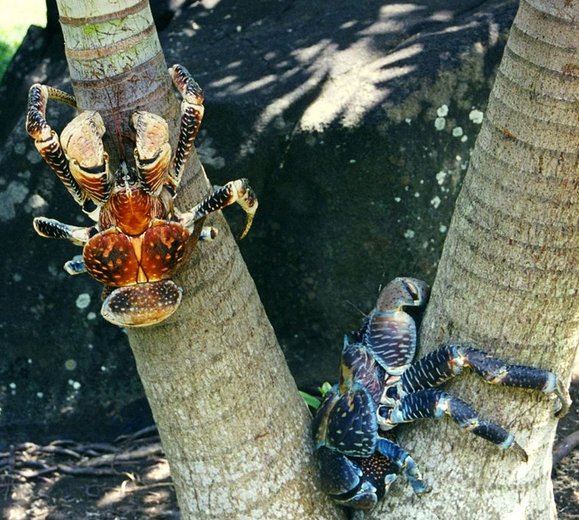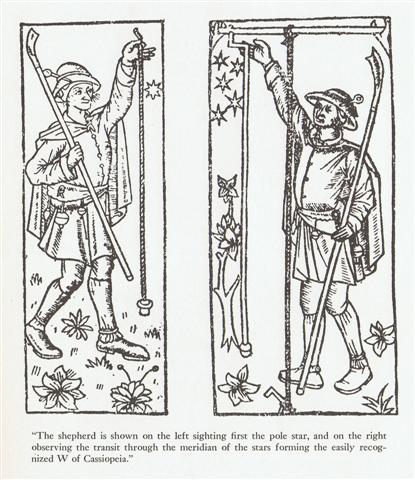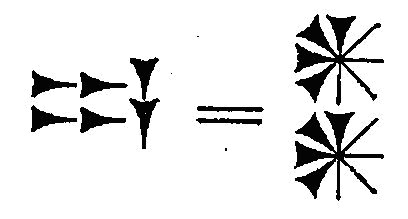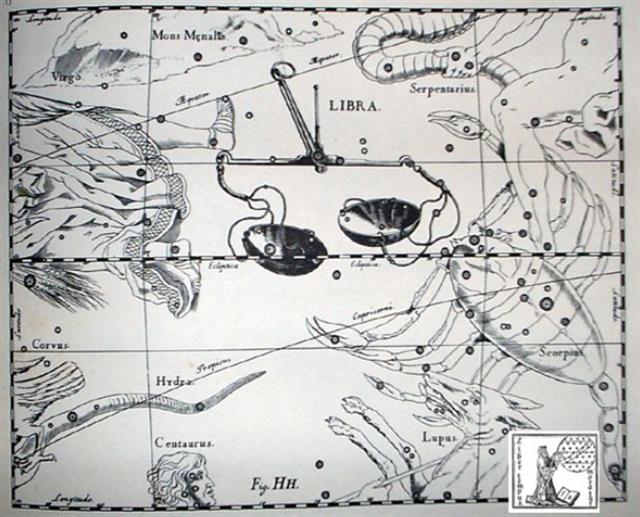TAHUA
6. I suggest my interpretation of the text from
heliacal Polaris at the end of side a of the C tablet and ahead
to the sunset of November 28 should be relied upon for our
investigations:
... The
correspondence
between the
winter
solstice and
the
kali'i
rite of the
Makahiki
is arrived
at as
follows:
ideally, the
second
ceremony of
'breaking
the
coconut',
when the
priests
assemble at
the temple
to spot the
rising of
the
Pleiades,
coincides
with the
full moon (Hua
tapu)
of the
twelfth
lunar month
(Welehu). In
the latter
eighteenth
century, the
Pleiades
appear at
sunset on
18
November.
Ten days
later (28
November),
the Lono
effigy sets
off on its
circuit,
which lasts
twenty-three
days, thus
bringing the
god back for
the
climactic
battle with
the king on
21 December,
the solstice
(= Hawaiian
16
Makali'i). The
correspondence
is 'ideal'
and only
rarely
achieved,
since it
depends on
the
coincidence
of the full
moon and the
crepuscular
rising of
the Pleiades
....

We should therefore now return to the beginning of the text on side b of
the Tahua tablet.
 |
 |
 |
|
 |
 |
 |
|
Aa8-80 (1329) |
Aa8-81 (666) |
Aa8-82 |
Aa8-83 |
Aa8-84 |
Aa8-85 (1334) |
| ki to hatu huri |
ma to ua mata
- mae tae e ui hia
mai |
kua oho te tagata |
ki te henua |
- |
|
Oct 16 (260 + 29) |
17 (290) |
18 (472 - 181) |
19 |
20 |
21 (294) |
| |
|
|
THUBAN |
|
|
|
April 16 (314 *
1½) |
17 (16 * 29½) |
(365 + 108 = 473) |
19 |
ALKES |
21 (111) |
|
To.
1.
Particle
sometimes
used
with the
article
in
ancient
legends;
i uto
to te
hau,
the
ribbon
was in
the
float.
2. To
rise (of
the sun)
during
the
morning
hours up
to the
zenith:
he-to
te raá.
Vanaga.
1. Of. T
Pau.,
Ta.:
to,
of.
Mgv.:
to,
genitive
sign.
Mq.:
to,
of, for.
2. This,
which.
Churchill.
Mgv.:
To,
to make
a canoe
of
planks.
Mq.:
to,
to build
a canoe.
Sa.:
to,
to
build.
Churchill.
Huri. 1. To turn
(vt.), to overthrow, to knock down:
huri moai, the overthrowing of the statues from
their ahus during the period of decadence on
the island. 2. To pour a liquid from a
container: ka huri mai te vai, pour me some
water. 3. To end a lament, a mourning: he
huri i te tagi, ina ekó tagi hakaou, with this
the mourning (for the deceased) is over, there shall
be no more crying. 4. New shoot of banana:
huri maîka. Vanaga. 1. Stem. P Mgv.: huri,
a banana shoot. Mq.: hui, shoot, scion. 2. To
turn over, to be turned over onto another side, to
bend, to lean, to warp; huri ke, to change,
to decant; tae huri ke, invariable; huri
ke tahaga no mai, to change as the wind; tae
huri, immovable; e ko huri ke,
infallible; huhuri, rolling; hakahuri,
to turn over; hakahuri ke, to divine. P Pau.:
huri, to turn. Mgv.: huri, uri,
to turn on one side, to roll, to turn upside down,
to reverse. Mq.: hui, to turn, to reverse. 3.
To throw, to shoot. 4. To water, to wet. 5. To
hollow out. Hurihuri: 1. Wrath, anger;
kokoma hurihuri, animosity, spite, wrath, fury,
hate, enmity, irritable, quick tempered, to feel
offended, to resent, to pester; kokoma hurihuri
ke, to be in a rage. 2. (huri 4)
hurihuri titi, to fill up. 3. To polish. 4. (uriuri).
Hurikea, to transfigure, to transform.
Churchill. Mq. huri, resemblance. Sa.:
foliga, to resemble. Churchill. |

... In the inscriptions of Dendera, published
by Dümichen, the goddess Hathor is called 'lady of every
joy'. For once, Dümichen adds: Literally ...
'the lady of every heart circuit'.
This is not to say that the Egyptians had discovered the
circulation of the blood. But the determinative sign for 'heart'
often figures as the plumb bob at the end of a plumb line coming
from a well-known astronomical or surveying device, the
merkhet. Evidently, 'heart' is something very specific, as
it were the 'center of gravity' ... See Aeg.Wb. 2, pp. 55f. for
sign of the heart (ib) as expressing generally 'the
middle, the center'. And this may lead in quite another
direction. The Arabs preserved a name for Canopus - besides
calling the star Kalb at-tai-man ('heart of the south')
... Suhail el-wezn, 'Canopus Ponderosus', the
heavy-weighing Canopus, a name promptly declared meaningless by
the experts, but which could well have belonged to an archaic
system in which Canopus was the weight at the end of the plumb
line, as befitted its important position as a heavy star at the
South Pole of the 'waters below'. Here is a chain of inferences
which might or might not be valid, but it is allowable to test
it, and no inference at all would come from the 'lady of every
joy'. The line seems to state that Hathor (= Hat
Hor, 'House of Horus') 'rules' the revolution of a
specific celestial body - whether or not Canopus is alluded to -
or, if we can trust the translation 'every', the revolution of
all celestial bodies. As concerns the identity of the ruling
lady, the greater possibility speaks for Sirius, but Venus
cannot be excluded; in Mexico, too, Venus is called 'heart of
the earth'. The reader is invited to imagine for himself what
many thousands of such pseudo-primitive or poetic
interpretations must lead to: a disfigured interpretation of
Egyptian intellectual life ...
 |
 |
 |
|
|
Ab1-5 ( → 25 * 27
= 15 * 45) |
Ab1-6 |
Ab1-7 (1341) |
|
Oct 26 (412 - 6 -
107) = 299 |
Oct 27 (*220) |
ρ Lupi (221.0),
TOLIMAN = α
Centauri
(221.2), π Bootis (221.8), ζ Bootis (221.9) |
|
17 Aug (229 = 299
- 70) |
18 Aug (*150) |
19 Aug |
|
16 Febr (412) |
17 Febr (413
→
14 * 29½ |
(14 * 29½ + 1) → *41.4
Bharani |
| atua ata Rei - tuu
te Rei hemoa |
i ako
te vai |
|
Ako. To sing, to recite:
he-ako i te kaikai, to recite the [text
accompanying a] string figure kaikai;
he-ako i te rîu, to sing rîu. Vanaga.
Song. Ako hakaha'uru poki = 'song to make
children sleep'. Barthel. Ákoáko, to recite
hymns in honour of a deity. Vanaga. |

 |
 |
 |
|
 |
 |
 |
|
Ab1-8 (1335 + 7) |
Ab1-9 |
Ab1-10 (90 + 580 + 10 = 1344) |
Ab1-11 |
Ab1-12 |
Ab1-13 (1347) |
|
29 (→ 152 + 150) |
Oct 30 |
Halloween |
Samhain (*225) |
2 (306 = 123 + 183) |
Nov 3 (*227) |
|
20 Aug (*152) |
21 Aug |
22 Aug |
23 Aug |
24 Aug (236) |
25 Aug (*157) |
| |
|
ZUBEN ELGENUBI |
 |
|
|
|
CLOSE TO
THE FULL
MOON: |
|
April 29 |
30 |
Beltaine (50 + 71) |
|
2 |
3 (123) |
4 |
|
19 Febr |
20 Febr (*336) |
21 Febr (29 + 21) |
22 Febr |
Terminalia |
|
|
|
|
BHARANI |
|
DENEBOLA |
MENKAR |
| Ko te
maitaki - ko te
maharoga |
hetuu e roia |
- |
e
ragi huhuki |
eaha ia |
ko te Rei oho ia mai |
|
Haro. To pull; popohaga o te rua raá, i
haro i te aka o te miro, on the morning of the second day, they
pulled up the anchor of the boat. He haro i te hagu a roto,
to draw in air, to breathe. He-haro te vaka i te au , the
boat is towed off course in the current. Vanaga. a. to point, to
raise the arm, to stretch out the hand or other member, to spread,
to point the yards. b. to hoist, to pull up, to entice. c. to
stiffen, to grasp, to squeeze. Haroharo, to point, to limp.
PS Sa.: falo, to stretch out. To.: falo, to stretch
out, to make tense. Fu.: falo, to stretch out, to lay hands
on. Churchill.
Hu. 1. Breaking of wind. T Mgv., uu,
to break wind. Mq., Ta.: hu, id. 2. Whistling of the wind, to
blow, tempest, high wind. P Pau.: huga, a hurricane.
Churchill. Mgv.: hu, to burst, to crackle, to snap. Ha.:
hu, a noise. Churchill.
|
The star sequences should continue uninterrupted
past Ab1-13 because the A text is long enough to avoid
discontinuities:
 |
 |
 |
 |
 |
 |
 |
|
Ab1-14 |
Ab1-15 |
Ab1-16 |
Ab1-17 |
Ab1-18 |
Ab1-19 |
Ab1-20 |
| e honu paka |
e kana ia
- kana rei ia - e heheu ia |
e pure ia |
ka tuu i
te ragi |
|
Paka.
1. Dry; to become dry (of things);
pakapaka, to dry out. Te paka is also the
name of the moss-covered areas, between the small lakes
of volcano Rano Kau, through which one can pass
without getting one's feet wet. 2. To go, to depart;
he-paka-mai, to come; he-oho, he-paka, they
go away. 3. To become calm (of the sea): ku-paka-á te
tai. Pakahera, skull, shell, cranium;
pakahera puoko tagata, human skull; pakahera
pikea, shell of crab or crayfish. Gutu pakapaka,
scabbed lips. Hau paka, fibres of the hauhau
tree, which were first soaked in water, then dried to
produce a strong thread. Moa gao verapaka,
chicken with bald neck. Ariki Paka, certain
collateral descendents of Hotu Matu'a, who
exercised religious functions. Vanaga. 1. Crust, scab,
scurf; paka rerere, cancer; pakapaka,
crust, scabby. 2. Calm, still. 3. Intensive; vera
paka, scorching hot; marego paka, bald;
nunu paka, thin. 4. To arrive, to come. 5. To be
eager. 6. To absorb. 7. Shin T. Pakahera,
calabash, shell, jug. Pakahia, to clot, curdle,
coagulate. Pakapaka, dry, arid, scorching hot,
cooked too much, a desert, to fade away, to roast, a
cake, active; toto pakapaka, coagulated blood;
hakapakapaka, to dry, to broil, to toast.
Pakahera pikea, shell of crab or crayfish.
Churchill. |
|
Nov
4 |
5 |
6 (310) |
7 |
8 |
9 |
10 (314) |
|
SEPT 1 |
2 (*165) |
3 |
4 |
5 |
6 |
7 (250) |
|
ZUBEN
HAKRABIM |
|
ZUBEN
ELSCHEMALI |
|
|
|
|
|
CLOSE TO
THE FULL
MOON: |
|
ALGOL |
|
|
ZIBAL
(*48.0) |
|
ALGENIB
PERSEI
GIENAH
|
|
|
May 5 (125) |
6 |
7 |
8 |
9 |
10 (*50) |
11 |
And the nakshatra view (ideally at the Full Moon) could of course be
said to correspond to shifting the time of observation from
morning to evening.

|












